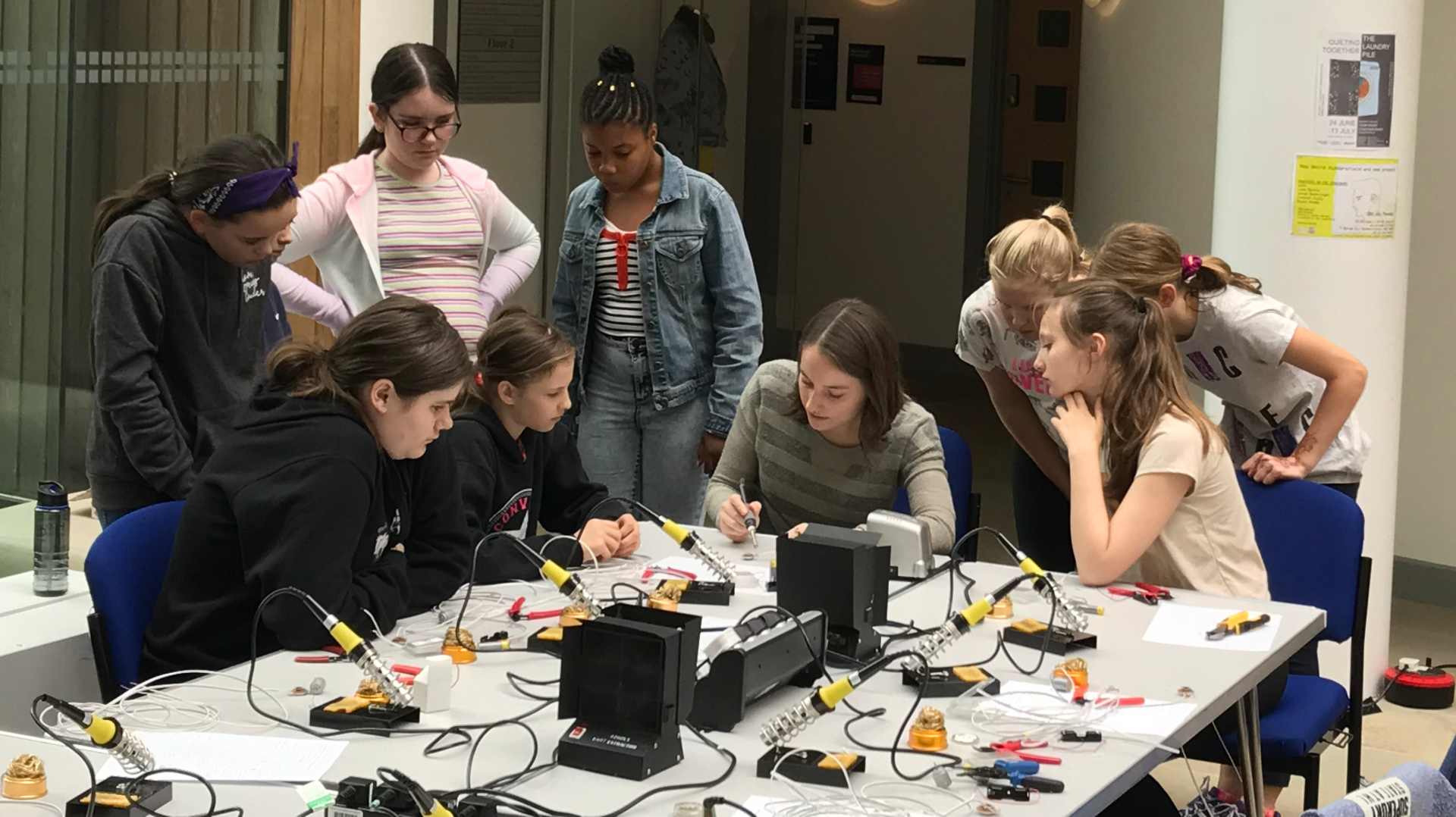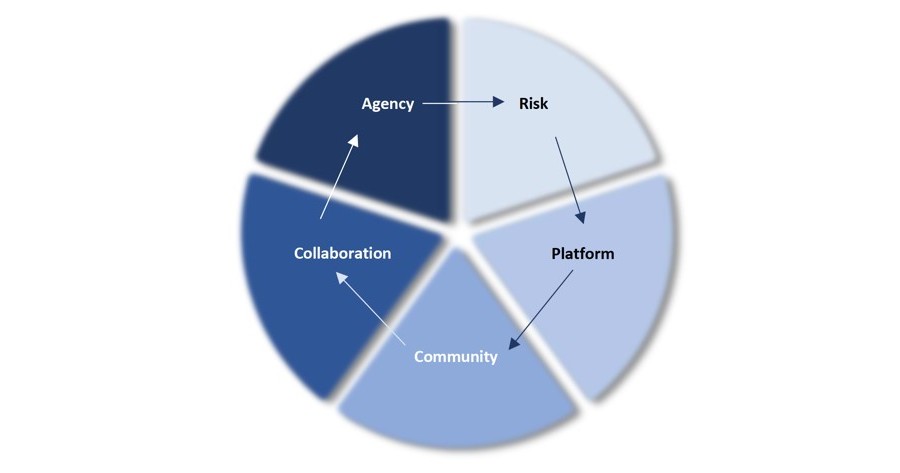
Gender and inclusion in music technology
Eddie Dobson is working on a cluster of initiatives and publications that address questions around gender, inclusion and access to learning and careers in music technology. Research and industry data demonstrate that while girls are engaged in music technology, boys are much more likely to progress into professional careers in sound. Liz is interested in creating alternative learning spaces that can act as hands up into mainstream pathways; offering contacts, knowledge, and access to equipment and providing an important catalyst for individual and collective change.
Drawing on her research on the social psychology of collaborative creativity in music technology, Liz creates spaces for girls and women to learn; to develop a personal confidence around working with sound equipment, to compose, make noise, to teach and mentor, and to learn STEM skills such as soldering, electronics and computer coding.
For example – in September 2016 The University of Huddersfield and Yorkshire Sound Women Network invited girls and women to solder noise instruments, under the guidance of synth developer Nina Richards. A video extract is accessible here.
,
Liz's work includes the The Yorkshire Sound Women Network, the Hear Me music technology summer school for girls, the Activating Inclusive Sound Spaces conference, and Go Compose workshops in collaboration with Sound and Music.
Related Research
Following her PhD on collaborative creativity and learning within music technology, Liz developed a model to foster enterprise amongst student musicians [published in 2015] and this guides all of her work on gender and inclusion in music technology.

This work has been transformed into a set of practice principles for collaborative learning, and it is now available as a resource for teaching and learning here.
Liz has subsequently been investigating collaborative learning through a social semiotic multimodal methodology. Further information will be shared on this following the publication of new findings.
Relevant Conference Papers, Keynotes and Webinars
See Pure for full list of research output.
Project image: Young composers learning sonic art practices with Eleanor Culley (shown) and Ryoko Akama in a 2019 Sound and Music Go Compose workshop on campus at The University of Huddersfield